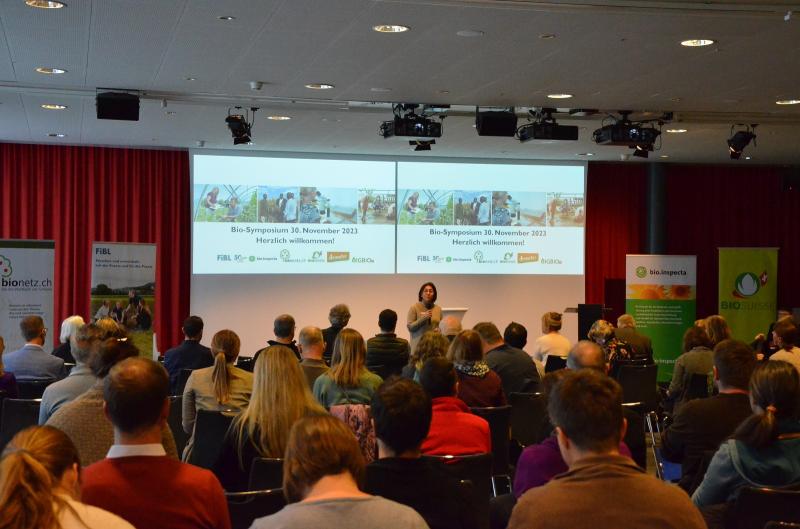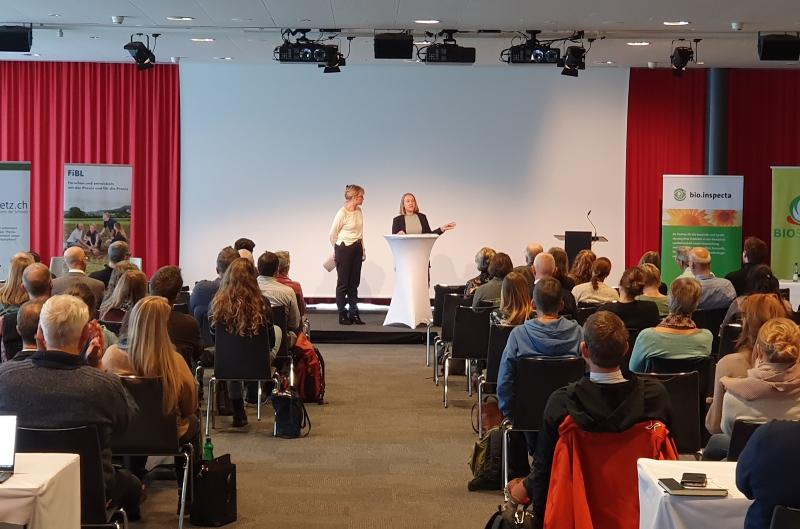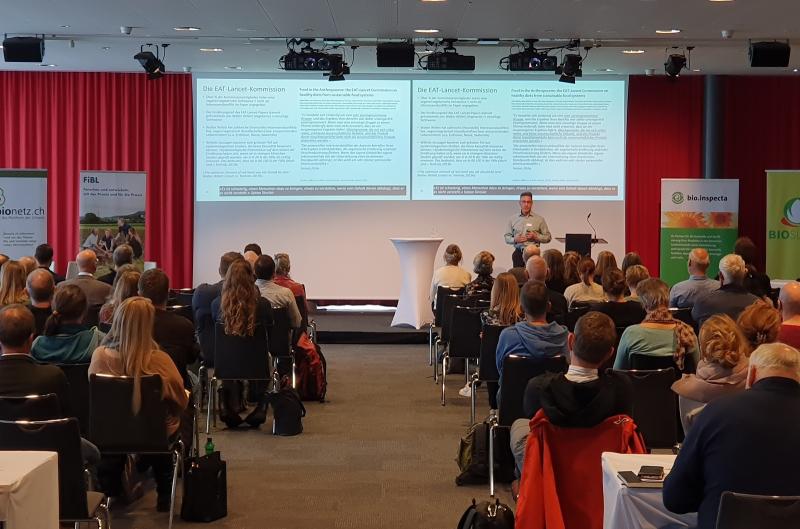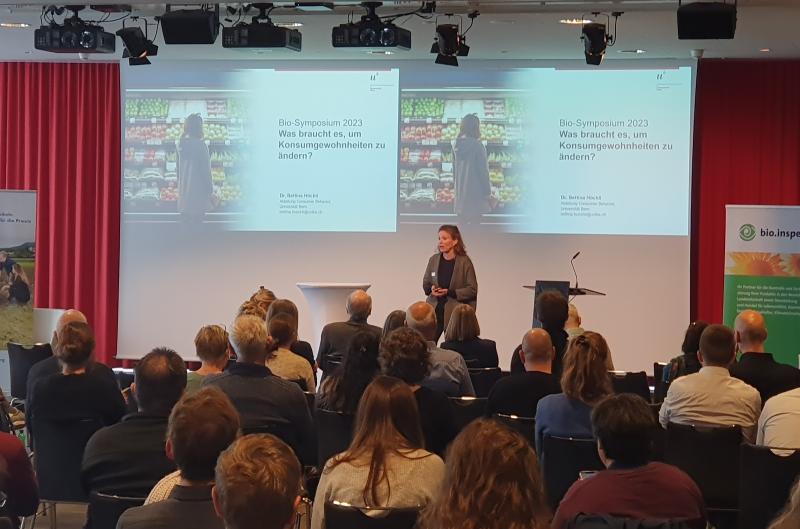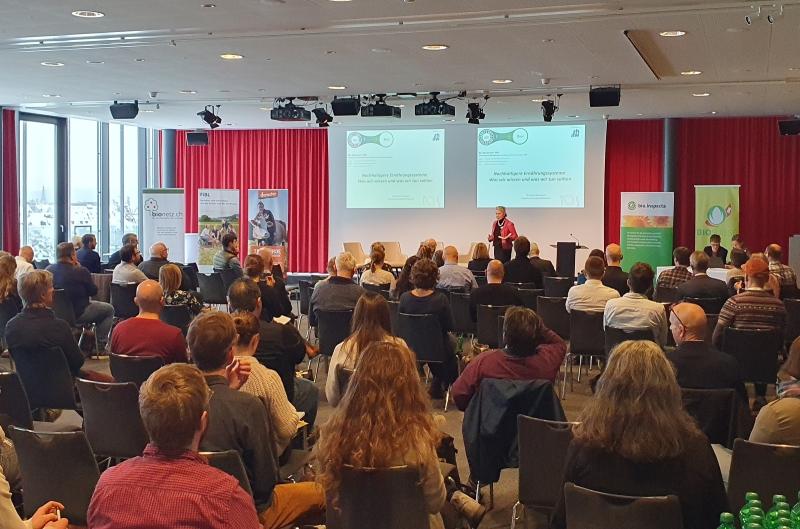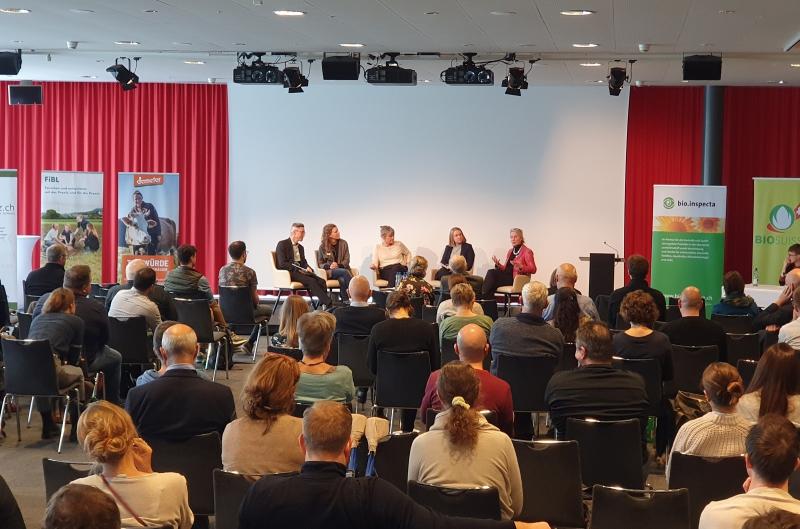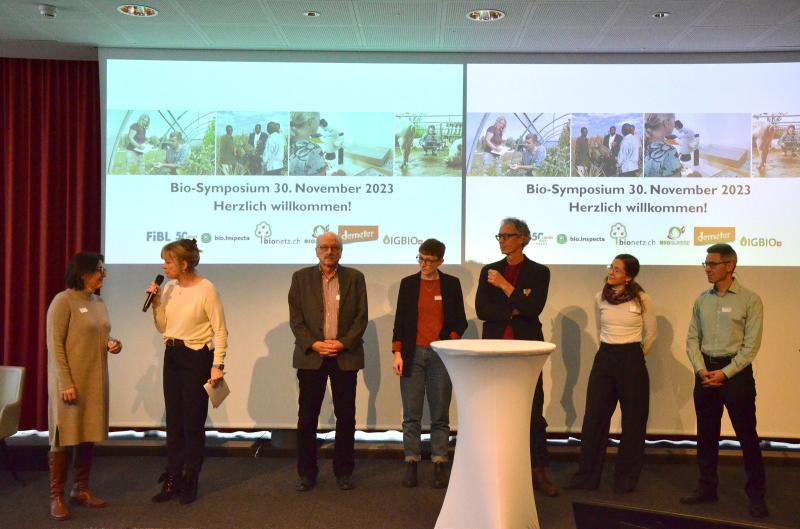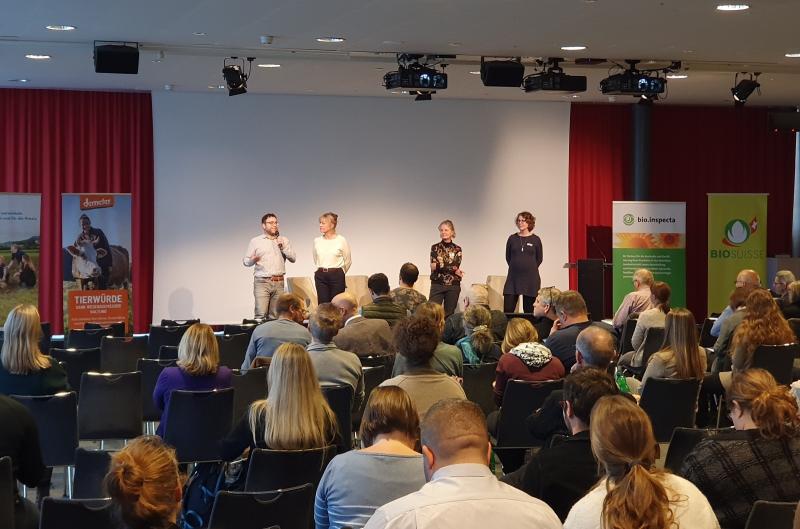
Review Bio-Symposium 2023
Organic sees itself as part of the solution in the transformation of the food system
Where is Organic in the transformation of the food system? Around 150 participants discussed possible solutions at the Organic Symposium 2023 in Bern.
The transformation of the food system towards sustainability is one of the big issues of the moment. Politicians are dealing with it and the discussion has become part of everyday life. But where is Organic in this important discourse? At the Organic Symposium 2023 in the Kursaal Bern, this gap was closed and answers to the question were provided: What should a sustainable food system look like that can feed people - and at the same time include "Organic"? Representatives from processing, trade and research gave input presentations on where they see starting points.
Plant-based, Organic or Plant-based-organic?
Lena Rutishauser from the Zurich food start-up Fabas showed what local pulses can contribute to the transformation of our food system. In the field, they are valuable in crop rotation; on the plate, they are an important part of a rich and sustainable diet. In order to promote the cultivation of plant-based nutrition, Rutishauser envisages an allowance for pulses - similar to the cheese allowance.
Niklaus Iten, Head of Quality Management at muesli pioneer bio-familia and President of the Swiss Organic Interest Group (IG Bio), focussed on the "plant-based" narrative of the organic sector "Planetary Health Diet" from EAT-Lancet. The discussion surrounding the transformation of the food system towards sustainability is dominated by this narrative. "It calls for a massive reduction in the consumption of animal-based foods, especially meat. This narrative is hardly questioned in the public debate anymore, while the role of Organic is hardly discussed," says Iten. Yet the Planetary Health Diet is characterised by strong contradictions and conflicting goals.
If the framework conditions are right, people change their habits
Bettina Höchli, researcher at the Department of Consumer Behaviour at the University of Bern, posed the question: What does it take to change habits? Three key components are important for this: cue, repetition and reward. In order to initiate a change in habits, it is important that the economic, social and individual framework conditions are right, said Höchli.
And the political framework? On the panel, chaired by SRF presenter Daniela Lager, Rutishauser, Iten, Höchli and Christine Brombach from zhaw university came to a clear conclusion about organic food: eating is a pleasure and a delight - and with organic food we are not only doing something good for ourselves, but also for the environment. In order to achieve this goal, political framework conditions must be created. People do not change their behaviour of their own accord.
The Organic Symposium 2023 "Sustainable food systems: The role and responsibility of Organic" was jointly organised by bio.inspecta, bionetz.ch, Bio Suisse, demeter, FiBL and IG Bio.
Input presentations
You can find the input presentations here: www.bio-symposium.ch
Further informations
Ursula Kretzschmar, Department of Agricultural and Food Systems FiBL, Tel. 062 865 04 27, ursula.kretzschmar@fibl.org
Lukas Inderfurth, Bio Suisse Communications, Tel. 079 682 22 86, lukas.inderfurth@bio-suisse.ch

